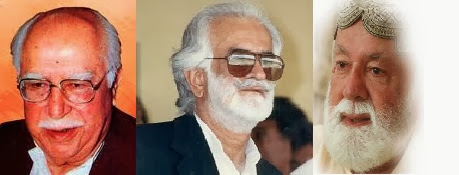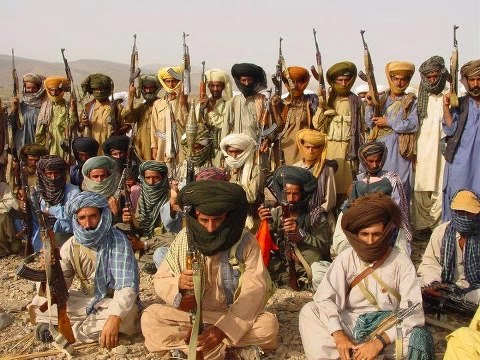Independent Balochistan: Right of Baloch Nation..by Aziz Baloch
Independent Balochistan: Right of Baloch Nation
by Aziz Baloch
” I have been frequently visiting Punjab Province and try to pursue the leaders of Punjab and asking them to read the writing on the wall, I have been pleading with them to join the struggle of smaller nationalities legitimate right rather to presume the lead winning the confidence of smaller nationalities, the apathy shown by ruling class sometime leads me to think that the position taken by my comrades, which I have been dismissing as subjective, is perhaps not so; on the contrary I now tend to ask myself am I the victim of flawed line of thinking? Is it a sense of frustration that lives in me from correctly evaluating the reality driven stand point (independence of Balochistan) of my comrades.” These are the words from prominent Baloch parliamentarian leaders late Mir Ghaus Bakhsh Bizenjo. He said this prior of two month in his death. “In search of Solutions: The Autobiography of Mir Ghaus Bakhsh Bizenjo”
The Late Mir Ghaus Bakhsh Bizenjo, former governor of Balochistan was a graduate of Aligarh University of India. He served as President of Kalat State National Party which was formed in 1937. The party struggled against the British occupation in Balochistan. As a democratically elected opposition leader in parliament of Kalat (independent Balochistan) state, he played a historical role, voted against the merger of Balochistan into Pakistan in August 12, 1947.However, later in his political career, as a moderate, liberal and secular leader he perceived a reconciliatory tone of politics by participating within the Pakistani ineffective parliamentary system. He demanded full autonomy of Balochistan. He participated five times in elections and he won twice. During his political career he had been in prison 13 years. Ironically, his more than five decades of struggle for autonomy of Balochistan ended without any results until his death. His people are still oppressed; they are still shouting for their basic rights such as education, infrastructure, hospitals, water, and jobs. All this while crying for justice and equality. Today his nation is going through a critical stage in their continued struggle for independence for Balochistan. They see no light at the end of the tunnel within the Pakistani and Iranian autocratic, dysfunctional political systems.
The Late Bizenjo is believed to be the first Baloch leader who visited Tehran; he approached Iranian regimes and asked for the Baloch people’s rights within the Iranian parliamentary structure. A noted American and South Asia expert, Selig Harrison, once interviewed a former Iranian Ambassador of Pakistan Mr. Manuchehr Zelli in Tehran. He asked, “What he thought of Mir Ghaus Bakhsh Bizenjo’s argument that a hard-liner approach would only stiffen Baloch resistance to force-full integration in Pakistan and Iran and that concession to demands for regional autonomy would strengthen the hands of the Baloch moderates.” Mr. zelli’s response was, ” You can’t trust the Baloch leaders…They will say anything that suit them at particular time, but their ultimate objective is independence. They will only take advantage of weaknesses and concession in order to move toward this ultimate objective.” Baloch nation sees injustices in all aspects of their lives under the rules of both occupying states. “When injustice becomes law, resistance becomes duty” For decades Baloch nation is struggling against tyrants, intolerant and non-democratic regimes of Pakistan and Iran.
Late Bizenjo, interestingly mentioned in his memoir about his old comrades with whom he once struggled alongside, namely, Nawab Khair Bakhsh Marri, the father of Baloch independence leader – Without any ambiguity openly says to the International Community, ” we were asked whether we wanted to join India or Pakistan. And we said, we wanted independence [Because] our language, culture, history, geography were never the same.” Today from all walks of life, across Balochistan’s cities, towns, villages, and deep in the remote mountains, his message for independence of Balochistan is getting stronger day by day. The Baloch masses, political activists, students, intellectuals and political parties are more convinced than ever that there is no other option left except to regain their independence. This was usurped by Pakistan and Iran in 1948 and 1929 respectively.
History has shown, all prominent Baloch secular and nationalist leaderships tried their best within the realms of the Pakistani parliament system to obtain greater autonomy but to no avail. One of the prime examples is the late Bizenjo who solely wanted to serve the ordinary Baloch people, a leader who never compromised his principles nor did sell out on his convictions. Bizenjo left big shoes to fill in Baloch politics of rights and freedoms. He dedicated his political career by pursuing Pakistani leadership, establishment, parliamentary leaders and the Pakistan Army to wake up and listen to the voices of oppressed ethnic groups. Bizenjo and the Baloch leaders of National Awami Party, the elected ruling party in Balochistan at the time, unconditionally supported Mujeeb-ur-Rehman and his right to power as the legitimate elected Prime Minister of Pakistan.
Along with the issue of oppressed nationalities in Pakistan, Bizenjo, being a true democrat and a secular politician, was vocal on the rights of religious minorities. He insisted that army as an institution had no role in the political system of the state and that the Judiciary and education should be developed independent of religion and the armed forces of the country.
In contrast to the political vision of Bizenjo, the dominant province of Punjab and its Pakistan Army never learned any lesson from the 1971 genocide of Bengalis. This resulted in the breakup of Pakistan. Ironically, Pakistan Army Generals repeated their dark history, and started the 1973-1977 brutal military operation in Balochistan and repeated it in 2004 continued to this date, at a cost of massive human rights violations.
When Pakistan Army Generals assassinated a vital Baloch politician, former governor and Chief Minister of Balochistan, Nawab Akbar Khan Bugti in August 2006, they deliberately developed a path of violence in the province that is fast growing to a point of no return. Nawab Akbar Khan Bugti, for more than five decades actively participated in Pakistani parliamentary system. Four decades of long (1950 – 1990) experience and relationship with the establishment and Islamabad taught him one thing: the centre ruled by Punjabi dominance was untrustworthy. Therefore, he came to the conclusion, that Baloch nation should not further waste their time for rights and justice in an unjust system of Pakistan. Lawrence Ziring, a professor and director, of the Institute of Government and Politics in Western Michigan University did some extensive research about state of Pakistan, he writes “Pakistani political life was consumed by the forces of necessity, not by the promise of democratic development… The juxtaposition of the civil-military bureaucracy and the politicians was the inevitable consequences of the colonial era.”
His analyses are perhaps backed by prominent Baloch leaders Nawab Akbar Khan Bugti when the BBC interviewed him on February 2005. He said, “They [the military-backed government] were nothing but exploiters.” It shows Pakistan’s ineffective parliament is nothing but an obedient servant of Pakistan Army.
Some suggested that Baloch struggle of independence is no match against the Pakistan’s powerful army. In the past, similar conclusions were drawn with the East Timorese national struggle of independence. As John G. Taylor, writes in “The Spector of Genocide: Mass Murder in Historical Perspective – “the poorly armed East Timorese independence movement would be no match for the Indonesian army.” And “Internationally, Indonesia was seen by the governments of industrialized states as crucial regional ally, whereas East Timor had no significant international support and could easily be isolated economically, politically, and diplomatically by Indonesia.” Moreover, “Yet, almost a quarter of century later, this short-lived intervention had not achieved its aim of integrating East Timor into the Indonesian Republic. Quite the opposite had occurred, with East Timor’s people voting overwhelmingly for independence on August 30, 1999.” Similarly, occupying state Pakistan and Iran for many decades have failed to integrate the Baloch nation within their unjust system. Today, Baloch are more alienated than ever and they are not ready to settle for anything less than independence of Balochistan. Baloch Homeland, due to its geo strategic location from 19th century till present has proven to be more important for the world powers compared to East Timor’s.
However, Mr. Taylor’s writes “at least 200,000 East Timorese, almost one-third of its pre-invasion population, had died. Thousands had been detained without trial, tortured, and disappeared. Most had been forcibly resettled, and lived under constant military surveillance. For most of this twenty-four year period the leading government of the industrialized world either ignored these events, or acquiesced in them, accepting Indonesian interpretations they knew were false.” Similarly, Baloch population is facing the 5th brutal military operation, mass killings and execution. Today’s grave situation of Balochistan, based on facts, is being ignored by the United Nations and International Community in the same way they did in East Timor’s. While Pakistani and Iranian regimes are committing crimes against humanity they are not being held accountable to according to the United Nations and International Laws. Instead, the world body is turning a blind eye to the ground realities and historic injustice done to Baloch people by the occupying states in Balochistan.
Article 7 of the Universal Declaration Act clearly states “No circumstances whatsoever, whether a threat of war, a state of war, internal political instability or any other public emergency, may be invoked to justify enforced disappearances.” It seems, as saying goes “History never really says goodbye, history says, see you later.”
The United Nations should enforce a no- fly zone in Balochistan similar to the one in Kurdistan enforced by the United States. In addition, it should send delegates of impartial investigators to observe the ongoing serious human rights violations, extra judicial killings and mass executions. They should not adopt a policy of silence do nothing and say nothing. Simply because the Baloch nation will keep asking the world the same question, again and again; for how long can you ignore us, before it is too late?
The writer is an activists, he lives in Vancouver, Canada.



Comments
Post a Comment